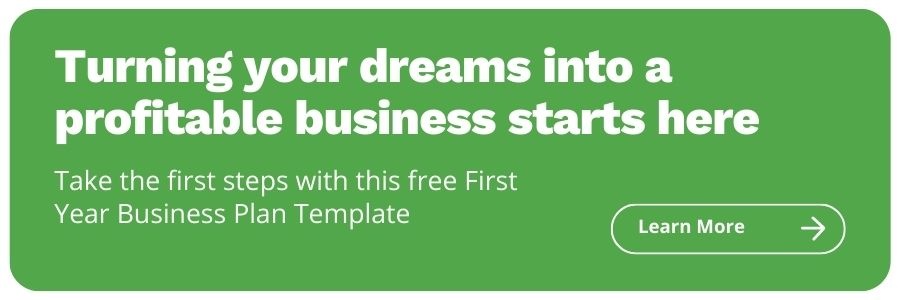The How and Why of Side Hustles for Financial Advisors
Share this
It’s not easy to go out on your own and launch your own firm as a young advisor. Although business startup costs are lower than they used to be – especially if you work virutally and offer virutal planning services – there is still an investment of not only your money but your time and energy.
Advisors also need to deal with complex issues around building up a business when starting from scratch, marketing themselves to prospects in order to gain clients, and ensuring compliance standards are met.
But here’s the good news: there are a few ways financial advisors can make the exciting, rewarding leap to running their own practice a little easier.
The first? The abundant resources, educational materials, and community support from XY Planning Network make a huge difference for advisors wanting to explore launching an RIA on their own. Our member benefits, technology platform, and collective knowledge of our community can make the difference between success and struggle.
The second way to make the transition to running your own firm easier is to consider how you can side hustle your way through the periods where you need additional income – or a way to fill the gap in income between launching your business to reaching your desired number of ideal clients.
We talked to several advisors who are XYPN member to get their insights, opinions, and tips on how financial planners can side hustle their way to success. These experiences and lessons learned can help guide you to starting your own side gig.
Side Hustles: More Than Just Additional Income for Financial Advisors
Before we dive into those insights from XYPN members, let’s take a moment and ask ourselves: who can benefit from a side hustle?
The answer is anyone. Any financial advisor can use a side hustle to help boost their income, career, or business – and you can get started before you even launch your own firm or finish your formal education.
Take Derek Lawson, for example. XYPN ran a feature on Lawson a few months’ ago to spotlight his excellent work at building a strong network of connections before he graduated. He’s done an equally great (and proactive!) job of using side hustles to establish his experience as he wraps up his graduate degree this month before heading on to pursue a financial planning Ph.D.fpa
“For me, it’s more about the experience gained than the income, although the extra income is definitely nice, especially as I look to go full-time at a Ph.D. program beginning sometime in 2015,” said Lawson.
“I currently work for Michael Kitces at Kitces.com assisting Michael with many research-based tasks….I’ve been able to learn quite a bit about Michael, how he runs a business, and how to conduct meaningful research as well as write in a way so that the research content is valuable to practitioners.”
Lawson also works with various start-ups – some financial planning firms, and some outside the industry – with social media management and content editing. He also helps another firm with developing smart workflows for better efficiency.
Side hustles for financial advisors offer a number of benefits to those who are brand-new to the industry or who are trying to gain a foothold:
-
Increased income
-
A variety of practical, real-world experience
-
A growing network that can serve as a source for testimonials or recomendations, or a potential pool of future colleagues and collaborators
Financial advisors who are already established, but are looking to launch their own firms or gain additional experience should also consider picking up a side hustle.
“When I launched Workable Wealth in August of 2013, I was also Director of Financial Planning for a San Diego Wealth Management firm that phased out through January 2014,” said Mary Beth Storjohann, CFP®. “Now, in addition to financial planning, I’m a paid writer, speaker and spokesperson for a non-profit.”
“Having a side hustle when I launched Workable Wealth helped me to supplement my income as I was building and allowed me to exit my old firm in a way that didn’t leave them hanging and kept our working relationship healthy,” she said.
Sophia Bera, CFP® of Gen Y Planning notes that both the income and the exposure helped when she launched Gen Y Planning.
“When I first launched, I was able to do some freelance writing for my last company as well as some ongoing writing for a personal finance blogger…it was really helpful in gaining exposure and building my brand. It was great for my [newsletter] readers to see that I was out there getting published and writing for other websites as well.”
Even established financial planners can benefit from a side hustle. “[My] side hustles provided me with needed income and also increased my exposure as an industry expert,” explained Eric Roberge, CFP® of Beyond Your Hammock.
“There’s nothing like getting paid to market myself and my business, while simultaneously building my brand.”
Matt Becker, financial planner at Mom and Dad Money, agreed. He currently serves as a staff writer for a few financial outlets.
“The freelance writing is great because it's not only extra income, but it's an opportunity to market myself to prospective clients,” said Becker.
“While I can't directly solicit clients, I have purposefully chosen jobs where the audience includes my ideal client base and where I can write on topics that further my brand. It's really a win-win.”
Roberge added that even though his firm is successful and profitable, he’ll likely stick with his side hustles. “Along with providing income and exposure, these side hustles allow me to see things from various perspectives, and serve as industry research,” he explained.
Bera said something similar. “I don't know if I will quit doing the side hustles because I like it so much. It's nice to mix things up with writing and coaching other planners.”
“As the online financial expert, I hear questions from people that spark new ideas for my business. At the same time, if I don’t know an answer to a question, I am forced to research it, which invariably sharpens my skills. Plus, I am continually networking and sharing my ideas. Such activities uncover new opportunities and partnerships.”
What Kind of Gigs Make Good Side Hustles for Financial Advisors to Make Aditional Income?
Convinced that side hustling is a good thing you need to get in on? You should be – all financial advisors can get value out of establishing their own side gigs. But it can be confusing if you’re not sure where to start.
For financial advisors looking for additional income to help launch their own firms, Eric Roberge suggested finding a way to fill the income gap you’ll likely experience as you get started.
“The more income you can earn initially, the less savings you deplete and the less debt you accrue [as you build your firm.] Once you have your necessities covered, you can begin to search for side hustles that align with your mission.”
Roberge has a few ideas to fill that income gap, too. “Some advisory firms may hire you as an independent contractor, paying you by the hour to create financial plans for their clients,” he said. “You might also find a part time job teaching financial literacy/planning at a local community college.”
“Be creative and don’t limit yourself to what might seem logical,” Roberge added. “Logic tends to smother outside-the-box thinking.”
Mary Beth Stojohann agreed. “Get creative. If you have a skill aside from financial planning that you can monetize while you launch, take advantage. Look to established firms who may need support in the financial planning department or in building their social media presence. Get active and connected on social media yourself to find virtual working arrangements.”
She also suggested that flexibility was key in side hustles for financial advisors. “Work from home arrangements are great,” she explained. “Getting paid as a contractor is ideal (not being an employee of a firm). Ideal arrangements are paid writing for magazines and websites as a financial contributor because it remains industry focused and allows you to build your portfolio of content.”
Derek Lawson said that an ideal side hustle is one that utilizes what you feel passionately about. “Even if it’s volunteer work at first, that’s fine. It will allow you to see if you truly do like it while gaining experience. That experience will allow you to capitalize on possible future opportunities in which you can turn that passion into some sort of side income.”
What Financial Advisors Should Be Aware of Before Hustling
Side hustles are great for part-time financial advisors – but you need to be realistic about the time and energy commitments you’ll be making.
Mary Beth Storjohann’s writing and speaking gigs currently command four hours of her time per week. Sophia Bera’s current side hustles, which include writing, speaking, working for eHow, and business coaching, take up about 10 hours of her time per week. Eric Roberge noted that he spends about 7 to 8 hours per week on his gigs, including writing, mentoring, and working for eHow.
Bera suggested a grin-and-bear-it approach to an increased workload while you’re working side hustles. “Do what you need to do to make it work for the next 6 months,” she advised planners who are launching firms. She added that it can be a good thing to have something else going on in addition to your new practice.
“I think it's really important to have something else that you're doing at least 10 hours a week to distract you from your business. If you're only working on your business full time then it's easy to get discouraged, but if you have somewhere else to be twice a week then you make better use of your time on the other days,” she explained.
“I've seen this happen with bloggers who leave their full-time jobs to work on their blogs full-time. It's not as smooth of a transition as they hope because they're just obsessing about their blog 24/7 instead of being really productive on their blog on the evenings and weekends.”
Becker did have a caveat to add to this, however – a bit of a flip side. “[My side hustles] took a significant amount of my time and energy away from my practice, which to some extent probably delayed my growth. In the end I'm happy for the opportunity but I will say that it's not ideal to have a side gig that isn't in any way related to your practice.”
And it’s also important to note that a side hustle won’t just come to you. You need to go out and hunt for the gig you want. Consistently doing this over time will yield results.
Matt Becker, Derek Lawson, and Eric Roberge all stressed the importance of just getting out there and getting started.
“The more people you put yourself in front of, the more opportunities will present themselves,” said Becker.
Lawson echoed that sentiment and said, “the more you do, the more you’ll get noticed, and the more opportunities you’ll create.”
And Roberge added that “the more I share, the more people are aware of my mission and the easier it is for them to send opportunities my way.”
It’s called a hustle for a reason. Be prepared to work. You need to be willing to spread the news about yourself, what you can do, and what you’re looking to take on. If you are, you’ll get to reap great rewards from your efforts.
Share this
- Road to Launch with XYPN Member Alan Skillern, CFP®, MBA
- Coaching for Better Time Management: Prioritizing Organic Growth in Your Daily Routine
- Boost Your Financial Advisory Practice: SEO Strategies and CRM Optimization for Sales Success
- Navigating the AI Revolution: What Financial Advisors Need to Know
- Advisor Blog (692)
- Financial Advisors (221)
- Growing an RIA (99)
- Digital Marketing (87)
- Marketing (84)
- Community (81)
- Start an RIA (76)
- Coaching (72)
- Business Development (71)
- Running an RIA (70)
- Compliance (69)
- Client Acquisition (65)
- Technology (64)
- XYPN LIVE (59)
- Entrepreneurship (56)
- Sales (49)
- Practice Management (44)
- Client Engagement (41)
- XYPN Books (38)
- Bookkeeping (37)
- Investment Management (37)
- Fee-only advisor (36)
- Lifestyle, Family, & Personal Finance (31)
- Employee Engagement (30)
- Client Services (25)
- Financial Education & Resources (24)
- Journey Makers (21)
- Market Trends (21)
- Process (14)
- Niche (11)
- SEO (9)
- Scaling an RIA (9)
- Career Change (8)
- Transitioning Your Business (7)
- Partnership (6)
- Transitioning To Fee-Only (4)
- Social Media (3)
- Transitioning Clients (3)
- Emerald (2)
- Persona (2)
- RIA (2)
- Onboarding (1)
- Sapphire (1)
Subscribe by email
You May Also Like
These Related Stories

How to Deal With Failure In Your First Year
Feb 25, 2016
5 min read

Going Beyond Planning: Earning More with Speaking and Writing
Feb 4, 2016
4 min read





